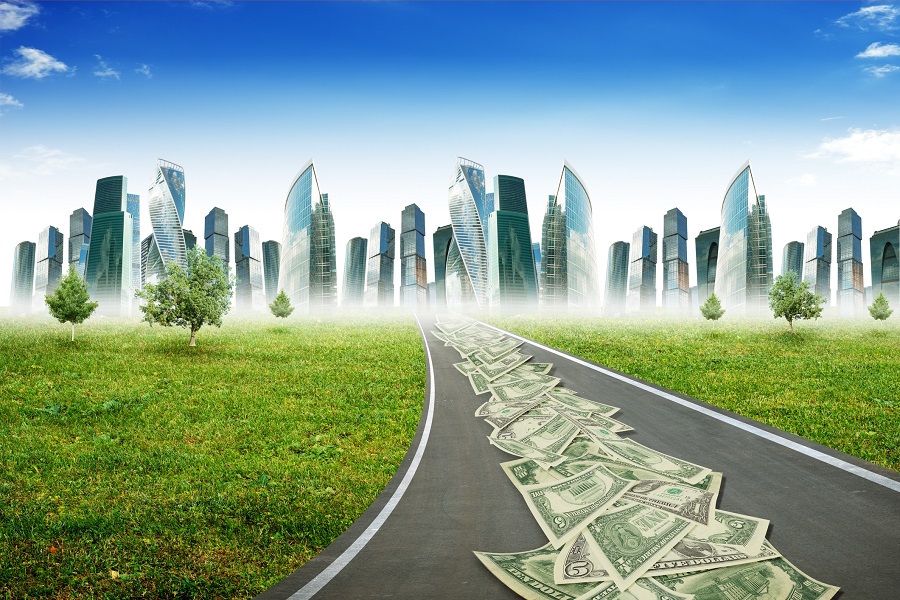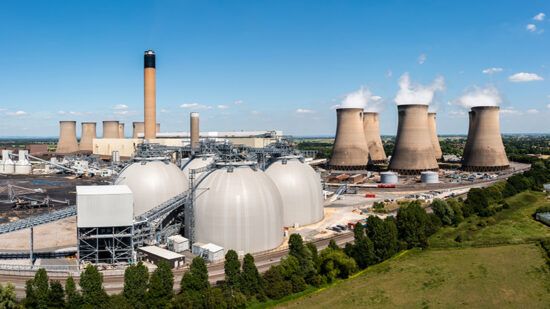The resilience of ESG funds during the Covid-19 crisis has been well documented in Europe, with many pointing to the relative outperformance of sustainable funds as evidence (at long last) that investing responsibly does not automatically mean having to give up financial returns.
When the global pandemic was declared and the threat to human life, economies and business was fully realized in early March, stock markets around the world posted record losses; across the Atlantic, the MSCI Europe and FTSE All-Share indices were down 19.2% and 25.1% respectively, according to data provider FE.
Clearly, energy and airlines companies in particular — among the biggest polluters — were pummeled as the prospect of very little business for a prolonged period sunk into investors’ mindsets, while sectors that tend to have higher ESG credentials — healthcare and technology, for example — found themselves in high demand.
To underline the point, the Energy sector in the MSCI World Index was down almost 30% for the month of March, while Healthcare posted a much smaller negative return of 3.6%.
Overall, equities have surprised with a strong rebound from market lows of March and the MSCI Europe and FTSE All-Share had shrunk their losses to 7.3% and 16.5% respectively, as of June 16.
Key investment commentators have said this has largely been driven by those in-demand and high-ESG companies, and, as governments and corporates begin implementing recuperation plans, they argue that businesses with high sustainable credentials will be at the forefront of propelling the global recovery.
Michel Perera, CIO at Canaccord Genuity Wealth Management, recently told ESG Clarity in Europe: “People are surprised the stock market has recovered so well. The economy is in dire straits, the virus is still soaring, many countries are still in full lockdown, corporate earnings have been cut or have completely vanished. But the market has been driven by companies benefitting from these situations; the technology companies, internet shopping, communications and healthcare. These are all doing extremely well as they are well used in lockdown.”
Perera suggests these companies are not enjoying higher relative returns just because they are in demand now, but because investors and society recognize they will continue to be in demand long after lockdown is lifted.
“Do you want to take the view that, when we get back to some sort of normality, people will go out straightaway to pubs and restaurants and use planes?” he asks. “Will people want to go out or do they still feel cautious and want to save money? Have they realised how precarious life can be? There will be elements of lockdown ingrained in the way we behave and consume. Working from home will not vanish overnight, online shopping has gone through the roof and a lot of that will stay. Healthcare concerns will continue.”
It is impossible to predict exactly how the recovery will pan out, but those who have fared better in the recent downturn look in good shape to lead the transition to the so-called ‘new normality’. These companies have already dealt with stressed supply chains, worked out how to reduce their business travel and made every effort to treat customers and staff fairly, even in this most critical and highly pressured scenario.
It is unlikely these companies will see ‘shoot your lights out’ returns, but having higher ESG credentials should mean better growth prospects, happier stakeholders and benefits for the planet and society.
And what if that was to take one step further? Impact investing, where an investment is made to generate a measurable, beneficial social or environmental impact alongside a financial return, is gaining in popularity in Europe with a flurry of fund launches … an issue I plan to return to in next month when I will explore how measuring impact risk could replace measuring financial risk in the not too distant future.








